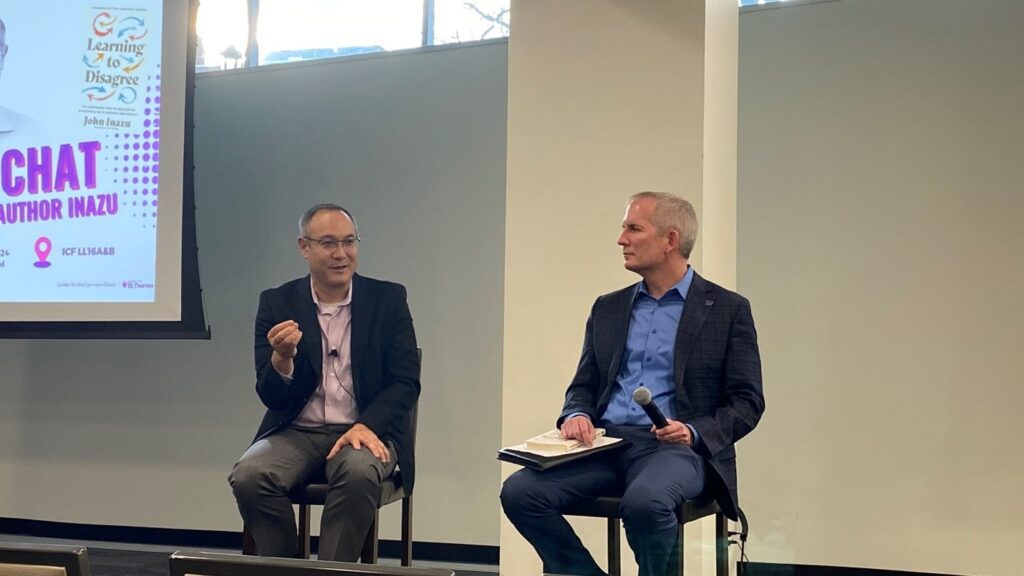"Fun" is not a word that's usually associated with health care, even if it's seeing a doctor for a simple check-up. But researchers from the Opus College of Business found that it was a word frequently used by participants asked to describe their experience at Health Fair 11, a health fair that takes place each year within the Minnesota State Fair.
Through Health Fair 11, fairgoers have access to medical workers who will check pulses, blood pressures, glucose levels, weight and eyes and ears. Flu shots are also available, and advocacy groups share health information on everything from gluten-free diets to stroke prevention to memory loss. Vendor groups include nonprofit organizations, professional associations and for-profit companies.
It's known that the health fair is a popular stop for people, but Dan McLaughlin, M.H.A, Jack Militello, Ph.D. and Michael Sheppeck, Ph.D. were asked by Health Fair 11 to gather more insight into just what impact its services have on fairgoers and on the health care industry. What might this model of delivering screenings have to say about patient engagement in an era when more emphasis is being placed on prevention and keeping people healthy?
In the summer of 2015, the researchers surveyed 351 visitors to Health Fair 11. When asked questions about why they decided to get screenings at the health fair, many respondents replied that it was convenient and fun, something that didn't require the hassle of making an appointment or taking off work. Others stated that it was an opportunity to engage in their own health. Visitors indicated that they most valued screenings for things like blood pressure, blood type, hearing, glucose and memory loss.
"In a way, people were saying, 'Here, I'm in charge, not the doctor," McLaughlin said. "They didn't have to see a doctor to get medical information about themselves and so they were more engaged. They felt as if they were more in control of their health." He added, "In all my years of working in the health care industry, I've never heard the word 'fun' associated with a medical experience."
Both McLaughlin and Militello pointed out that this survey, while not scientific, provides a glimpse of a bigger picture as old definitions and methods of delivering health care - the compartmentalized boxes - continue to break down. "People used to be seen strictly as 'patients' and now health care providers and insurers talk more about 'customers,' meaning people who have choices and who are more educated about their health," Militello said. “People do not necessarily have to see a doctor for basic screening. We are going to continue to see innovations in this area.”







